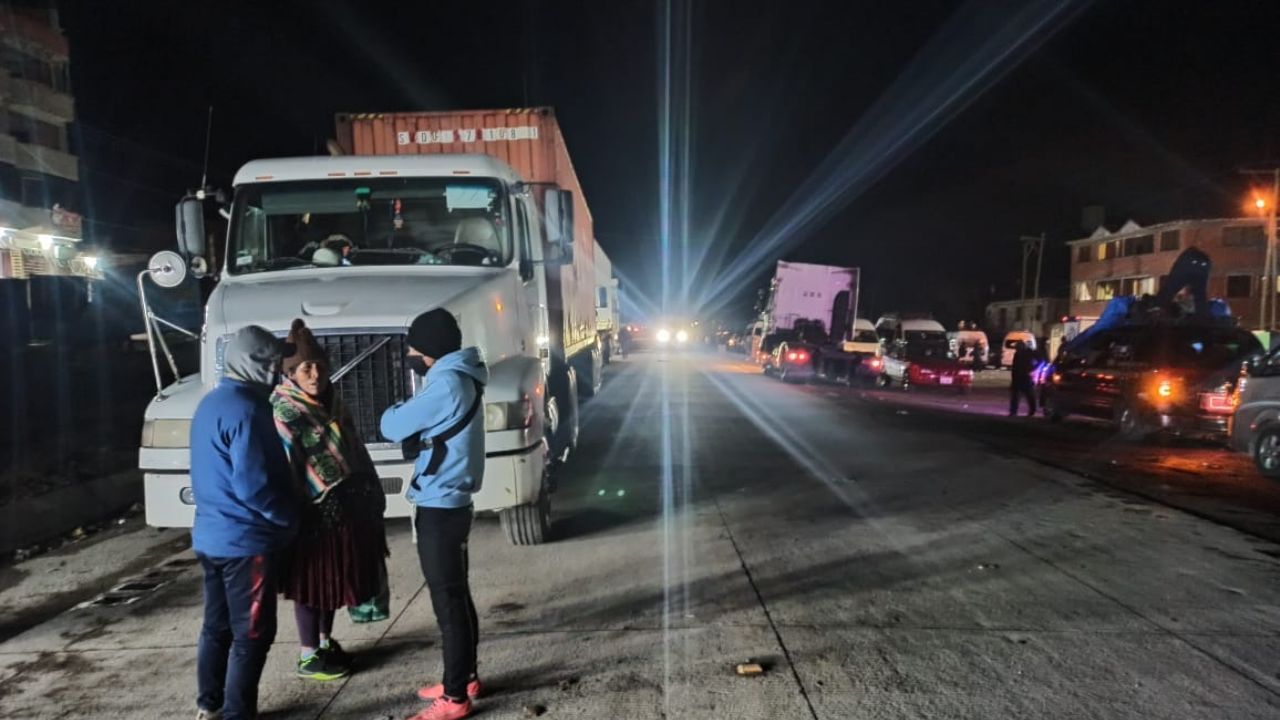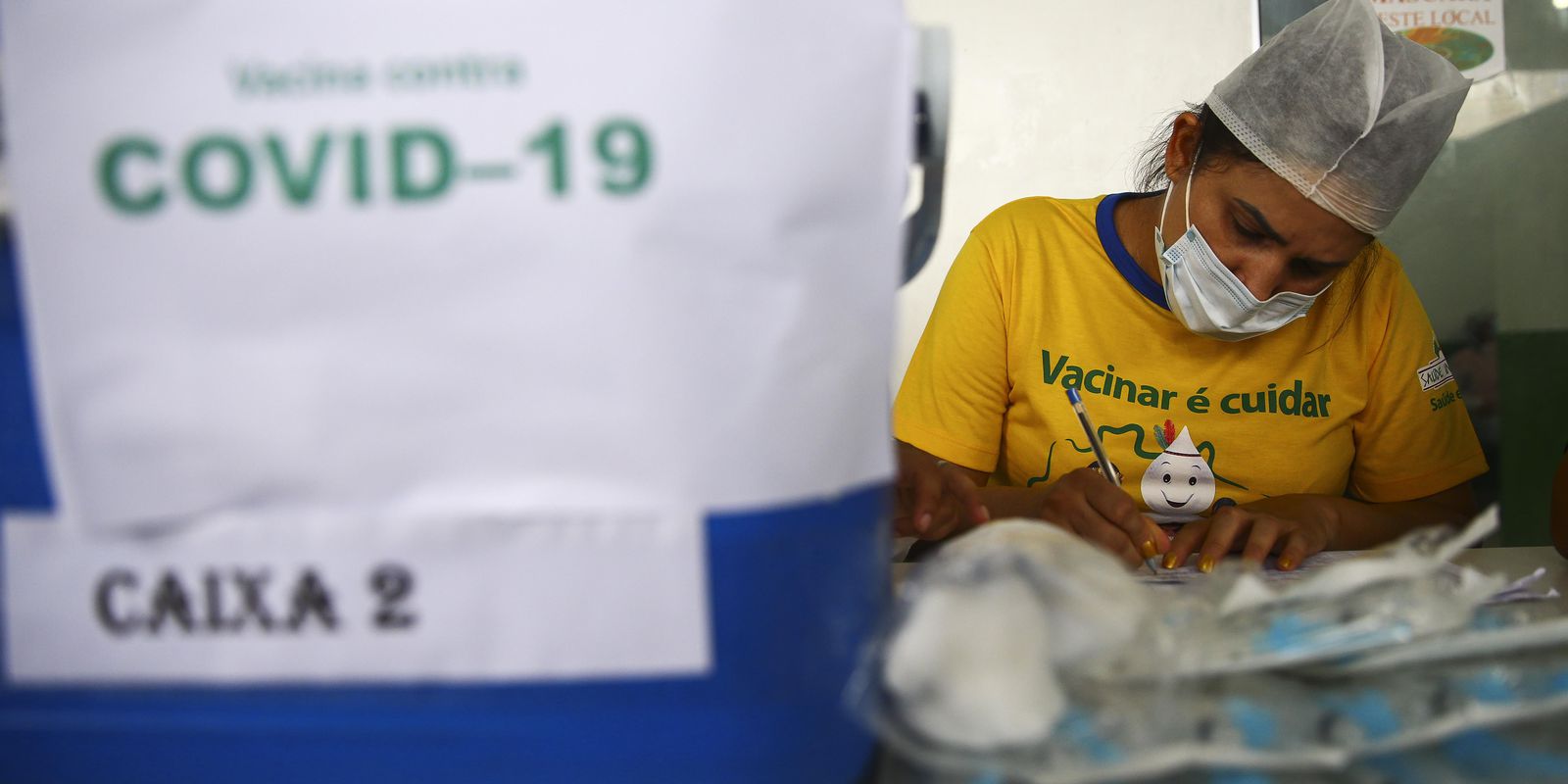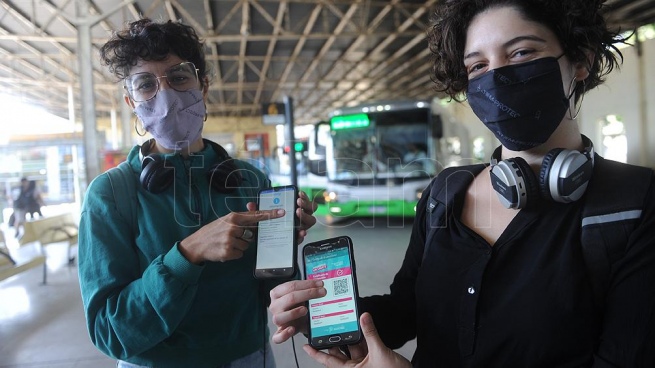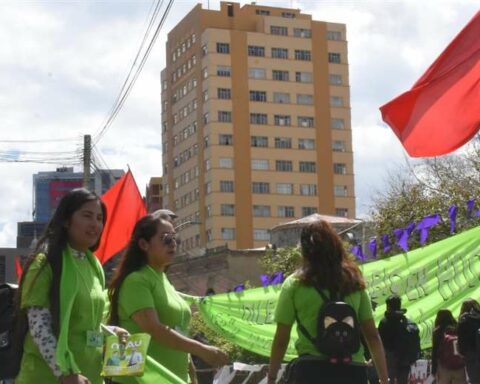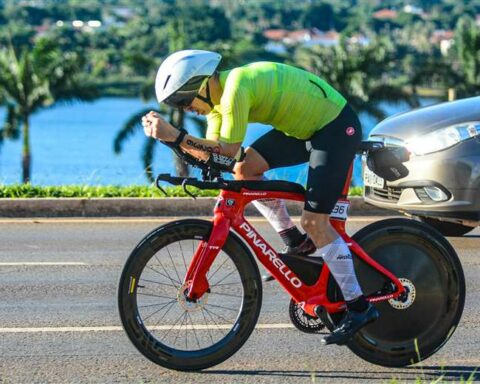Paulo Lizarraga / Pisiga, Oruro
Almost two weeks in the middle of the highway, formed in a long line near the border to go to Chile, heavy transport drivers told Page Seven Digital all the adversities they face these days. Poor nutrition, the cold of the highlands and the shortage of PCR tests for the detection of Covid-19 in Pisiga, Oruro, are the problems that must be overcome.
Until Wednesday afternoon, the line of carriers exceeded 10 kilometers, with more than 500 trucks with cargo waiting to enter Chilean soil.
You can also read: Authorities from Bolivia and Chile set an appointment for this Sunday due to the border problem
Most of the carriers subsist with the little food they had with them at the time the border point was closed, while the cost of food in that area rose due to shortages.
“Practically (I am) sleeping in the truck and during the day we eat only dry rations; broad bean, toasted, pito de cañahua; its the only thing. Then they come to bring food, but they don’t work, because they are soups, they sell very little. A lunch costs 15 bolivianos and a good plate 20, and it is only a plate”, he told Page Seven Digital the carrier Freddy Flores.
The absence of sanitary measures for the prevention of the coronavirus led drivers to take measures such as parking the truck of the infected carrier on the side of the road.
You can also read: To speed up transit, Chile decides to accept covid tests from Bolivia at the border
Fernando Borda, driver of another international cargo motorized vehicle, told this medium that after identifying the drivers with Covid-19, the Chilean health system and the Departmental Health Service (Headquarters) of Oruro observe the vehicle to avoid its passage, and that both entities are “interconnected”.
“The truck parks on the side (of the road), it is observed and so is the driver. The Chilean health and the Bolivian Headquarters are interconnected. (If a driver) tests positive, they no longer give evidence on paper, but by email, ”said Borda.

The carrier Ronald Fernández indicated that the PCR tests must be taken in the city of Oruro, in the absence of a sampling point in Pisiga,
This hinders the stay and the budget that drivers have, because the cost of the round trip to the city, in addition to taking the test to detect the disease, affect their economy.
You can also read: VIDEO: Closure of complex fuels drama on the border with Chile
“In the matter of (the test) PCR, we take out when we come to the line and it only serves us 72 hours, that is, three days; I’m already there for eight days and it’s another cost to go back to Oruro and get another PCR test done to go back and cross. There is no laboratory here, they charge us 70 bolivianos one way (to Oruro) and another 70 return; and in the General Hospital they charge us 500 for the PCR test”, lamented Fernández.
The Foreign Ministry and health authorities announced that Bolivia and Chile reached an agreement so that the authorities of the neighboring country endorse the coronavirus detection tests carried out by the Bolivian health brigades starting this Thursday.
page seven will offer you in its edition this Friday a note on the situation of the carriers who were left unemployed with their motorized vehicles on the border with Chile.

